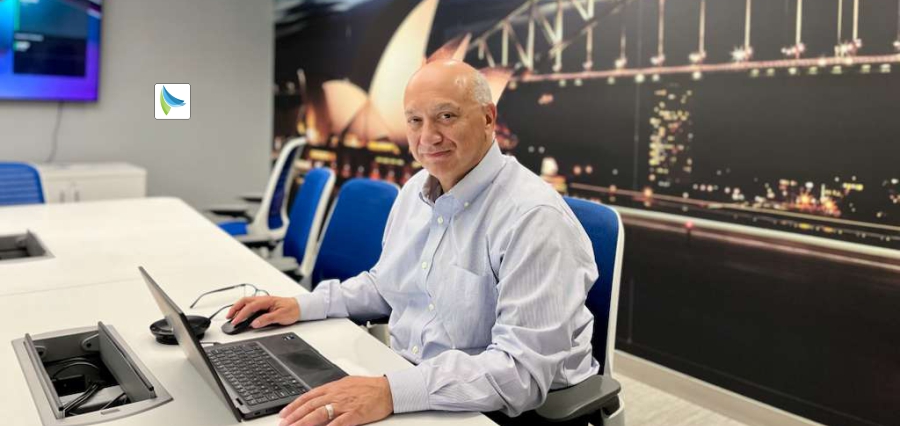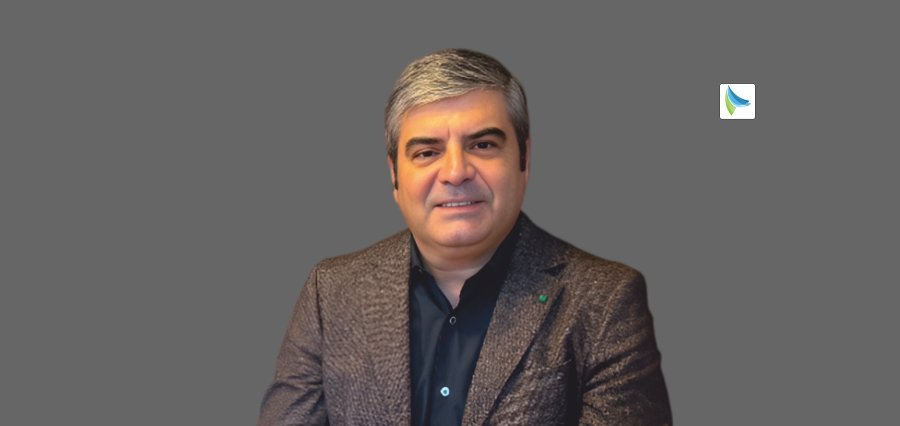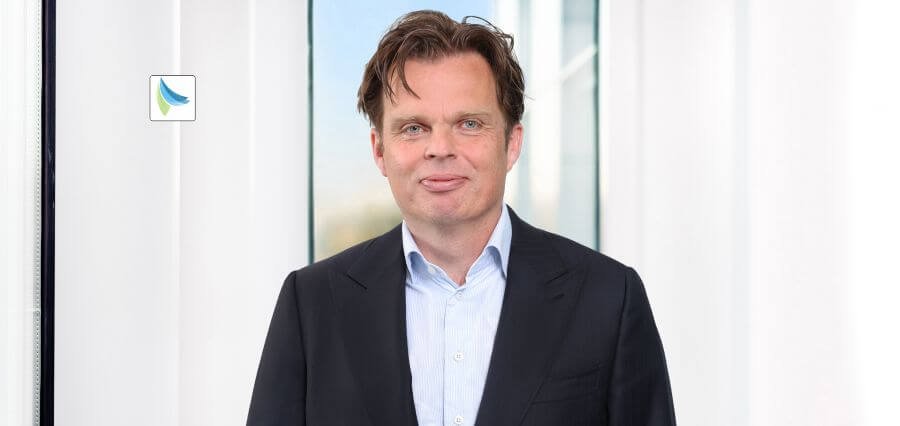Every industry has moments that distinguish stable managers from revolutionary leaders. One such name is Eugene Galdi, his defining moments have occurred during times of turmoil, when raw material shortages and global freight delays were threatening to cripple whole supply chains. While many competitors crumbled, he led his people through uncertainty with innovation and resilience, transforming crises into a competitive advantage. His ability to reinvent sourcing methods, form unconventional relationships, and keep promises in the face of change marked the start of his transition from functional leader to strategic business architect.
His journey is a combination of operational discipline and forward-thinking vision. Beginning his career in chemical sales, he developed a keen sense of detail and a results-oriented mindset. As global logistics became more complex, his leadership philosophy evolved, from rigorous process control to empowerment, cooperation, and creativity. Today, as Vice President and Chief Procurement Officer at Arxada, he is advocating for a “multi-horizon” approach that combines faultless execution in the present with investments in sustainability, digital transformation, and future-ready supply chains.
Galdi is standing out not only for his competence, but also for his belief in trust-based collaborations, purposeful leadership, and procurement’s ability to drive global growth and innovation.
From Crisis to Competitive Advantage
A defining moment in Galdi’s career came during a period when there was a severe raw material shortage coincided with global freight disruptions. While competitors struggled and lost market share, he and his team redesigned sourcing strategies, engaged non-traditional logistics partners, and crafted creative risk-sharing agreements. The result? Not only did they maintain production, but they also delivered on customer commitments when the entire industry faced unprecedented challenges.
This crisis became a catalyst for his transformation from functional leader to strategic business architect. The experience reinforced his belief that transactional negotiations are proven to be insufficient during turbulent times success depends on trust-based supplier relationships and collaborative partnerships that extend far beyond traditional contracts.
“That experience emphasized for me the importance of resilience, creativity, and collaboration under pressure. It also reinforced the value of trust-based supplier relationships because in times of crisis, transactional negotiations are not enough,” he explains.
Evolution of Leadership Philosophy
Galdi’s leadership approach has undergone significant evolution throughout his career. His early years focused heavily on execution, maintaining tight processes and optimizing costs with meticulous attention to detail. As the industry transformed and his responsibilities expanded, he recognized that effective leadership in global logistics requires empowerment rather than control.
Today, he employs a collaborative and strategic leadership style that emphasizes setting clear direction, aligning teams around shared goals, and empowering employees to develop innovative solutions. He is creating environments where diverse perspectives flourish and calculated risks receive encouragement rather than punishment.
“I’ve learned that the best leaders are those who build environments where diverse perspectives are valued and where calculated risks are encouraged,” he notes.
His leadership philosophy now emphasizes constant learning, external partnerships, and forward-thinking strategies that keep teams focused on “the next horizon.” This external orientation proves to be essential in an industry facing shifting trade regulations, sustainability imperatives, and rapid digital transformation.
Mastering the Balancing Act
One of Galdi’s most impressive skills lies in balancing short-term operational efficiency with long-term strategic growth, a challenge that defines modern supply chain management. He accomplishes this through a sophisticated “multi-horizon” approach that establishes clear priorities across three-time frames.
In the immediate term (0-12 months), his team focuses on flawless execution, cost discipline, and supply reliability. Medium-term priorities (1-3 years) are centered on building supply chain resilience through supplier diversification, regional logistics balancing, and technology adoption that improves visibility and agility. Long-term investments (3-10 years) target innovation, sustainability, and partnerships that will define competitive advantage in the next era.
“This ‘multi-horizon’ approach ensures that we never lose sight of today’s performance while systematically building the foundations for tomorrow’s growth,” he explains.
Innovation Through Curiosity
Galdi fosters innovation within his teams by encouraging them to challenge established practices. He regularly asks his teams to question existing processes: “Why do we do it this way, and what if we didn’t?”
His innovation strategy operates on three levels. First, he cultivates a culture of curiosity where new ideas receive. Teams receive celebration for taking initiative, even when attempts don’t succeed, because each effort provides valuable learning opportunities.
Second, he actively collaborates with external partners, recognizing that suppliers, startups, and technology providers often generate the best ideas. These collaborative partnerships bring fresh thinking and keep organizations ahead of industry shifts.
Third, he invests heavily in digital tools, recognizing that data visibility, predictive analytics, and artificial intelligence are transforming the field. By equipping teams with cutting-edge technology, he frees them from repetitive tasks and enables them to focus on strategic innovation.
Future-Focused Vision
Galdi identifies several trends that are already reshaping the global logistics landscape. Digitalization and AI will make supply chains more transparent, responsive, and resilient through predictive analytics, AI-driven forecasting, and real-time visibility platforms. Sustainability and circular supply chains respond to increasing demands from customers, regulators, and investors for more sustainable practices.
Nearshoring and regionalization reflect geopolitical shifts and risk diversification strategies, driving companies to rebalance global networks and reduce reliance on single regions. Meanwhile, autonomous and smart logistics from automated warehouses to self-driving freight, will transform efficiency and labor models.
“These trends won’t just redefine logistics, they will redefine competitiveness. The companies that invest now will set the pace for the next decade,” he observes.
Leading Through Turbulence
During challenging market conditions, Galdi maintains team motivation through transparency, empowerment, and recognition. He provides honest assessments of challenges while clearly articulating opportunities they create. He encourages his teams to propose solutions rather than wait for direction, fostering ownership and pride. Even small victories during difficult periods receive recognition, reinforcing progress and maintaining strong morale.
“Ultimately, engagement is about purpose. I remind teams that procurement and logistics are not just about moving goods; they are about enabling customers and driving growth,” he emphasizes.
Developing Tomorrow’s Leaders
When mentoring future leaders in procurement and logistics, Galdi looks for three primary qualities: curiosity, resilience, and collaborative mindset. He values lifelong learners who eagerly understand new technologies, markets, and cultures. Supply chain leadership demands individuals who can adapt, recover quickly, and thrive under pressure. Success requires leaders who can influence across functions, cultures, and organizations.
Beyond these core qualities, he prizes integrity and courage. The global supply chain landscape frequently presents ethical gray areas and difficult trade-offs, making these character traits essential for sustainable success.
Strategic Goals and Legacy
Looking ahead, Galdi’s professional goals center on three priorities. He aims to drive sustainability at scale, advancing initiatives that reduce carbon emissions, increase circularity, and create greener supply chains. He plans on accelerating digital transformation by leading adoption of advanced analytics, AI, and automation to make supply chains more intelligent and resilient.
Perhaps most importantly, he focuses on developing the next generation of leaders who will carry procurement and logistics forward. “If I can help shape a pipeline of visionary, ethical, and resilient leaders, that will be my greatest legacy,” he states.
His ultimate ambition involves positioning procurement and logistics not as cost centers, but as engines of innovation, growth, and sustainability for the global economy.
Redefining an Industry
Galdi’s career exemplifies how visionary leadership can transform traditional business functions into strategic competitive advantages. His journey from chemical sales to procurement leadership is a demonstration that success stems from combining operational excellence with strategic thinking, crisis management with innovation, and individual achievement with team empowerment.
As global supply chains are facing unprecedented complexity and change, leaders like Eugene Galdi are proving that logistics and procurement professionals don’t simply move goods, they are shaping the future of how businesses, societies, and economies connect. His approach to leadership, innovation, and strategic thinking positions him among the most pioneering leaders shaping the future of global logistics in 2025.
Through challenges that forced innovation, relationships that built resilience, and a vision of supply chains as drivers of growth and sustainability, he continues pioneering the future of an industry that touches every aspect of global commerce. His story serves as both inspiration and roadmap for the next generation of logistics leaders who will inherit an increasingly complex and interconnected world.














